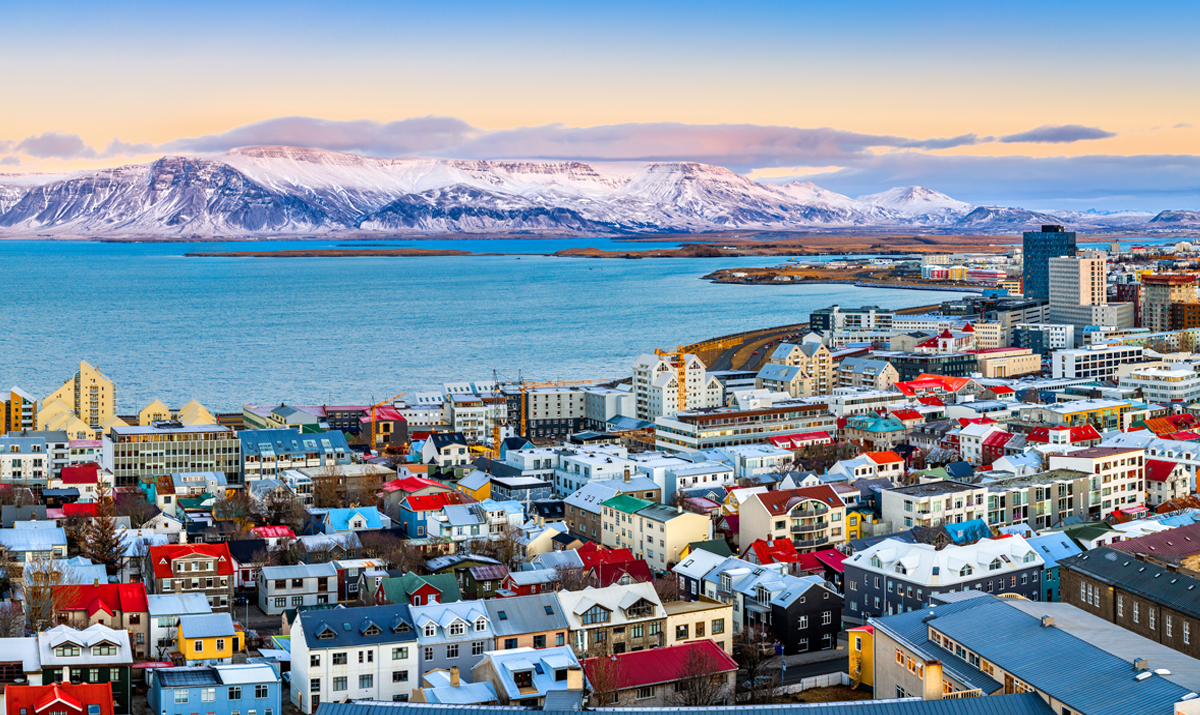
04 Oct Robust financial foundations for growth
Iceland staged an astounding economic recovery after 2008’s global financial crisis that threatened to decimate much of its financial system. And the country has realized an even faster return to form in response to COVID-19, achieving a 4.5% rise in gross domestic product in 2021, 7.2% in 2022 and 7% in the first quarter of this year, when compared to the same period in 2022.
Further evidence of the nation’s buoyancy comes from S&P Global, which revised its outlook for the country from stable to positive and confirmed its A/A-1 sovereign credit ratings in May. “The positive outlook reflects our view that Iceland’s fiscal outlook or its ability to withstand external shocks will continue to improve, potentially beyond our expectations, over the next 24 months,” explained the ratings agency.
Its economy was able to weather the pandemic better than others thanks to a comprehensive set of actions taken by the government in the wake of 2008, which included overhauling financial frameworks and restructuring the banks.
As a result, “Our public and state debt levels were very low prior to the pandemic. Iceland was severely impacted by COVID-19, due to the size of the tourism sector in our economy. However, our prudent financial management provided us with the flexibility to utilize the strength of the treasury to support the economy. During the pandemic years, we laid a solid foundation for economic rebound by implementing extensive support programs for businesses and households,” reveals Minister of Finance and Economic Affairs Bjarni Benediktsson, who notes that Iceland’s now-robust banking sector played a major role in steering the country through the crisis. This sector is made up of four universal banks and five savings banks that have significant capital and liquidity buffers, solid balance sheets and which hold assets worth 135% of GDP, according to an International Monetary Fund report from May.
The government’s measures went beyond stabilizing the economy and ensuring that companies and workers were able to spring back into operation when the pandemic subsided, Benediktsson adds: “One example of our forward-thinking approach was our international-airport investment. Despite the absence of air traffic, we made a strategic decision to initiate a new project with an investment of around $300 million.”
Iceland’s economic revival means that the minister has been able to phase out COVID support initiatives and he is now working to regain a balanced budget, while maintaining public investment levels. One advantage Iceland has at the moment is that it is less dependent on international energy prices than other nations, as all households and many businesses are powered and heated by locally produced renewables.
Even so, says Benediktsson, “We’re currently grappling with inflation for mostly domestic underlying reasons: the housing market faced a shortage of supply, which led to increasing prices, driven by low interest rates and rising salaries. In response, the Central Bank of Iceland has raised interest rates repeatedly and it was the first central bank to take this sort of action. Due to the rate hikes and measures aimed at increasing the supply of residential housing, the trend has started to reverse.”
Public finances contribute to value creation
The Icelandic population is currently the ninth richest globally, according to IMF data. “It’s remarkable to see our GDP per capita ranked among the top 10 worldwide. This indicates we’re creating significant value and serves as a testament to our economic strength and resilience. With such a strong economic foundation, our focus remains on providing top-level public services to our citizens,” states Benediktsson.
“In Iceland, we take pride in achieving even more. For instance, we have the highest household cable connections in Europe, our internet usage ranks among the highest globally and our citizens are well educated. This favorable environment has helped us to become leaders in various high-tech industries and we’re determined to maintain our position at the forefront.”
His ministry is constantly evaluating how public finances can better contribute to greater economic value creation in order to sustain the country’s social security, healthcare and education systems, as well as infrastructure development. Encouraging further diversification is another critical concern for the government’s financial strategies.
“By expanding the range of industries and sectors, we aim to reduce susceptibility to economic downturns and fluctuations. This will contribute to building a more stable, resilient economy,” Benediktsson says.
“Our approach of providing tax incentives, boosting competitive funds and offering kickbacks to those investing in research and development has proven successful. It has led to the creation of more well-paid jobs and is fostering the growth of export companies. We’ve had tremendous success in software and technology sectors and the impact extends to our traditional economy as well, including the fisheries industry.”
The minister’s long-term priority is to seize on opportunities to promote a greener economy in Iceland. The country’s financial sector is already making a considerable contribution in this area: all the universal banks are rated highly for environmental, societal and governance concerns and the sector has developed a wide portfolio of sustainable-financing solutions, including green bonds, mortgages, loans and deposit accounts.
When it comes to the wider economy, “Our goal is to find innovative ways to reduce emissions while also leveraging our expertise in sustainable energy to provide valuable solutions for the rest of the world. By developing sustainable solutions and sharing them internationally, we aim to contribute positively to the global fight against climate change.”
